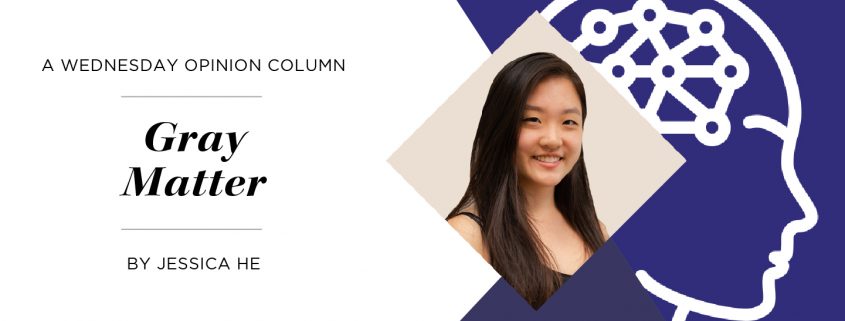Gray Matter: Here’s how you can study smarter according to science
With finals quickly approaching, it’s safe to say that just about every student on campus is dreading the same thing: those sleepless nights spent in Leavey Library, cramming for what feels like an endless week of exams. However, research has shown that putting in long hours is not always the most efficient way to study. Instead, here are a few methods to study smarter and make finals week less overwhelming.
First, let’s talk about ways to get the most out of our limited study time.
Although it may seem counterintuitive, taking breaks is actually crucial to effective time management and long-term retention. According to the interference theory popularized by psychologist Benton Underwood, studying for long, uninterrupted periods results in proactive interference — in other words, previously studied information will inhibit the learning and retrieval of new material later on.
To prevent this psychological effect from hindering your studying, it’s important to take breaks with activities unrelated to the topic you’re learning. These kinds of breaks allow for release from proactive interference, meaning you’ll be able to return to studying with a refreshed brain.
A popular study by DeskTime, a productivity app, found that employees work most efficiently on intervals of 52-minute work periods and 17-minute breaks. However, this schedule may not be ideal for everyone. No matter what schedule you decide on, it is important to not only take breaks with unrelated activities but also to focus solely on studying during work periods. Despite what we may think of our multitasking abilities, human attention is highly limited, and we can only do one thing well at a time.
We’ve all heard that repetition is the key to learning, but mindless repetition alone won’t help you remember the material. Instead, information must be rehearsed in varied, meaningful ways. So, instead of reading over your notes over and over or listening to the same lecture again, it would be more effective to use a combination of study strategies, such as explaining the information to someone else and drawing diagrams.
Using both verbal and visual study methods is important because it allows the brain to perform dual coding, a theory formulated by psychologist Allan Paivio. According to his theory, storing information, especially abstract concepts, using two types of encoding results in stronger long-term memories and better recall, since visual and verbal information is processed and stored in two separate pathways in the brain.
In addition to dual coding, another way to enhance long-term memory storage is by connecting newly learned information to existing knowledge, using a process known as cognitive elaboration. Through cognitive elaboration, we expand the semantic networks that we use to organize information in our minds — a simple example is learning the word “crab” and connecting it to “ocean,” which is connected to “beach” and so on. By connecting new concepts to old material, we increase the number of retrieval cues available for those concepts, making it more likely for us to remember them come exam time.
Another effective way to study is to test yourself in the same format that the exam will be given in. For example, to study for a multiple-choice exam, it would be helpful to quiz yourself by writing your own multiple-choice questions and the possible set of answers.
A study by two psychologists at Washington University in St. Louis found that college students who studied a prose passage and then took a practice test remembered more of the passage than students who simply studied the passage twice. This testing effect applied to exams given five minutes after or a week later, so no matter when your test is, it may be worth your time to quiz yourself on what you’ve studied instead of just reading over the material again.
Finally, it goes without saying that it’s important to get a good night’s sleep after studying. This may be the most restated piece of advice, but it has a neurological basis. According to a review by neuroscientists Björn Rasch and Jan Born, sleep is crucial to the consolidation of memory into long-term memory because the sleeping brain is optimal for the chemical and neuronal processes involved in this stage of cognitive processing.
With these study tips in mind, you’ll be ready to tackle finals week without all the stress that usually comes with it.
Jessica He is a senior writing about neuroscience. Her column, “Gray Matter,” ran every other Wednesday.

